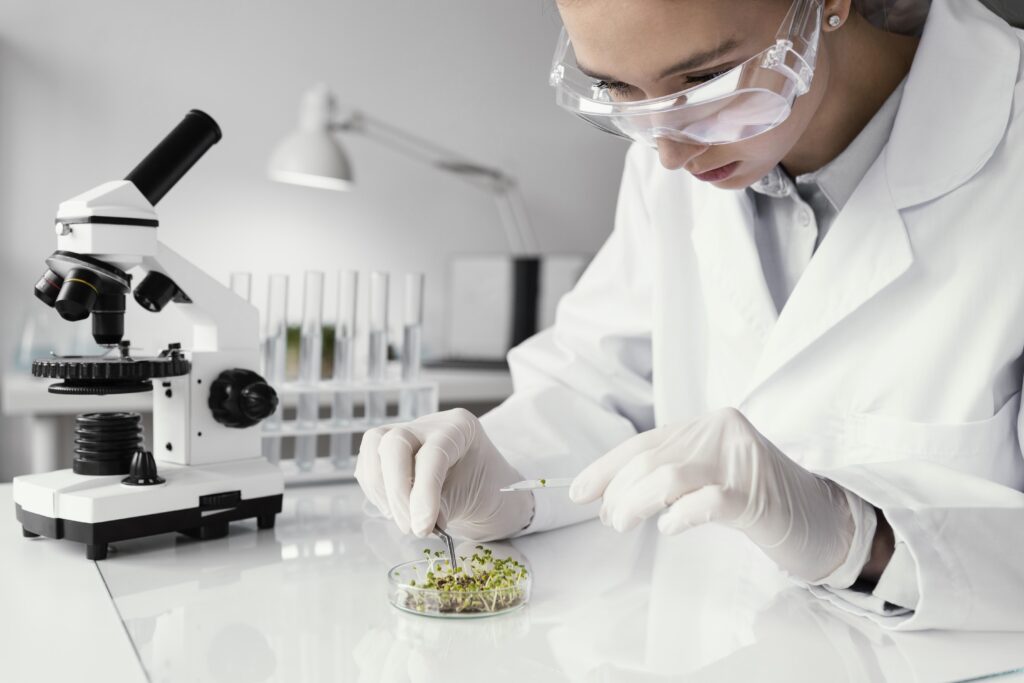Food safety is a critical concern in the food processing industry due to the potential health risks associated with contaminated food products. Because tainted food items may pose health risks, food safety is a top priority in the food processing business. To safeguard the public’s health and uphold customer confidence, food products must be safe to eat. Foodborne infections brought on by contaminated food can have serious repercussions, such as hospitalization or even death. Consequently, food processing companies need to put food safety first to avoid these kinds of situations and protect consumers.
Furthermore, food safety includes preserving the general quality of food products in addition to preventing illness. Customers want their meals to be healthy, fresh, and devoid of dangerous ingredients. Companies may guarantee that their products live up to these expectations by following stringent food safety procedures, which will increase customer satisfaction and loyalty.
Understanding Food Safety Protocols
Food safety protocols are a collection of guidelines and practices intended to guarantee that food is handled, processed, and prepared in a way that reduces the chance of contamination and foodborne illnesses. These guidelines cover a wide range of food production activities, from obtaining raw ingredients to packing and shipping. Food processing companies can ensure that their goods fulfill safety standards and regulatory requirements by following these practices.
Key Food Safety Protocols in the Food Processing Industry
Hazard Analysis and Critical Control Points (HACCP)
Throughout the food manufacturing process, hazards are identified, assessed, and controlled using the Hazard Analysis and Critical Control Points (HACCP) method. It is based on seven main principles: hazard analysis; setting critical limits; identifying critical control points (CCPs); putting monitoring mechanisms into place; developing corrective actions; validating the system; and maintaining records.
Good Manufacturing Practices (GMPs)
Guidelines known as “Good Manufacturing Practices” are crucial for ensuring that manufacturing facilities and processes are properly designed, monitored, and controlled. GMPs address several topics, such as raw material handling, equipment maintenance, personnel hygiene, and facility cleanliness.
Sanitation Standard Operating Procedures (SSOPs)
Standard operating procedures for sanitation provide comprehensive guidelines for the cleaning and sanitization of facilities, tools, and equipment. SSOPs guarantee a clean manufacturing environment and aid in preventing cross-contamination. Cleaning schedules, cleaning procedures, and verification are important components of SSOPs.
Allergen Control Programs
Customers with allergies are in danger from food allergens. In addition to ensuring that products containing allergens are appropriately labeled, an allergy control program helps reduce cross-contact. An allergen control program’s essential elements are allergen identification, labeling, cleaning, and segregation.
Supplier Verification Programs
For food safety, it is essential to guarantee the quality and safety of raw ingredients. Programs for verifying suppliers entail assessing and approving vendors according to their capacity to uphold quality and safety criteria. Maintaining documentation, testing materials, and monitoring suppliers are important aspects of supplier verification.
The Importance of Food Safety Protocols
Implementing and adhering to food safety protocols is vital for several reasons:
Preventing Foodborne Illnesses
Foodborne infections have the potential to harm a company’s brand as well as have serious effects on customers. Food processing enterprises can reduce the danger of contamination and guarantee the safety of their goods by adhering to food safety regulations.
Compliance with Regulations
Food safety regulations vary by country, but they all aim to protect consumers from unsafe food. Adhering to food safety protocols helps companies comply with these regulations and avoid legal penalties.
Enhancing Consumer Confidence
Consumers are increasingly concerned about the safety and quality of their food. Demonstrating a commitment to food safety through rigorous protocols can enhance consumer confidence and build trust in a brand.
Protecting Brand Reputation
Food safety testing incidents can have long-lasting effects on a company’s reputation. Implementing robust food safety protocols can help prevent such incidents and protect the brand’s reputation.

Reducing Recalls and Waste
Food recalls are costly and can result in significant financial losses. By ensuring food safety through established protocols, companies can reduce the likelihood of recalls and minimize waste.
Challenges in Implementing Food Safety Protocols
While food safety protocols are essential, implementing them can be challenging. Some common challenges include:
Training and Education
Ensuring that all employees understand and follow food safety protocols needs continual instruction and training. To ensure that employees are knowledgeable about the most recent procedures for food safety, businesses need to fund training initiatives. To guarantee compliance and inform staff members about new methods and technology, this entails conducting frequent seminars, certifications, and refresher training.
Keeping Up with Regulations
Regulations about food safety are always changing. Businesses need to keep abreast of regulatory developments and modify their procedures as necessary. This calls for a committed group or person in charge of keeping an eye on changes in regulations and making the required adjustments within the company. Maintaining compliance guarantees consumer safety in addition to avoiding legal ramifications.
Managing Supplier Relationships
Ongoing supplier communication and monitoring are necessary to maintain efficient supplier verification procedures. Developing trusting connections with suppliers is essential to guaranteeing raw material quality and safety. This entails carrying out routine audits, acquiring updated certifications, and promoting open communication to quickly handle any issues that may arise.
Resource Allocation
It can take a lot of resources to put food safety procedures into practice. Businesses need to commit enough time, funds, and staff to creating and maintaining these procedures. To achieve the greatest safety standards, this may entail making investments in cutting-edge technology, recruiting specialist personnel, and regularly modernizing buildings and machinery.
Integrating Technology
Technological developments are a major factor in improving food safety practices. Automation, data analytics, and real-time monitoring systems can all be used to better identify possible risks and increase overall productivity. However, some businesses find it difficult to integrate these technologies because they need a significant financial commitment and training.
Conclusion
Food safety protocols are essential to the industry of food processing. They support consumer health protection, regulatory compliance, and contamination prevention. Food processing enterprises can maintain high levels of food safety and quality by putting common food safety protocols like HACCP, GMPs, SSOPs, allergen management programs, and supplier verification programs into practice. Notwithstanding the difficulties, following food safety regulations has many more advantages than disadvantages, which eventually helps to create a food supply chain that is safer and more reliable.











